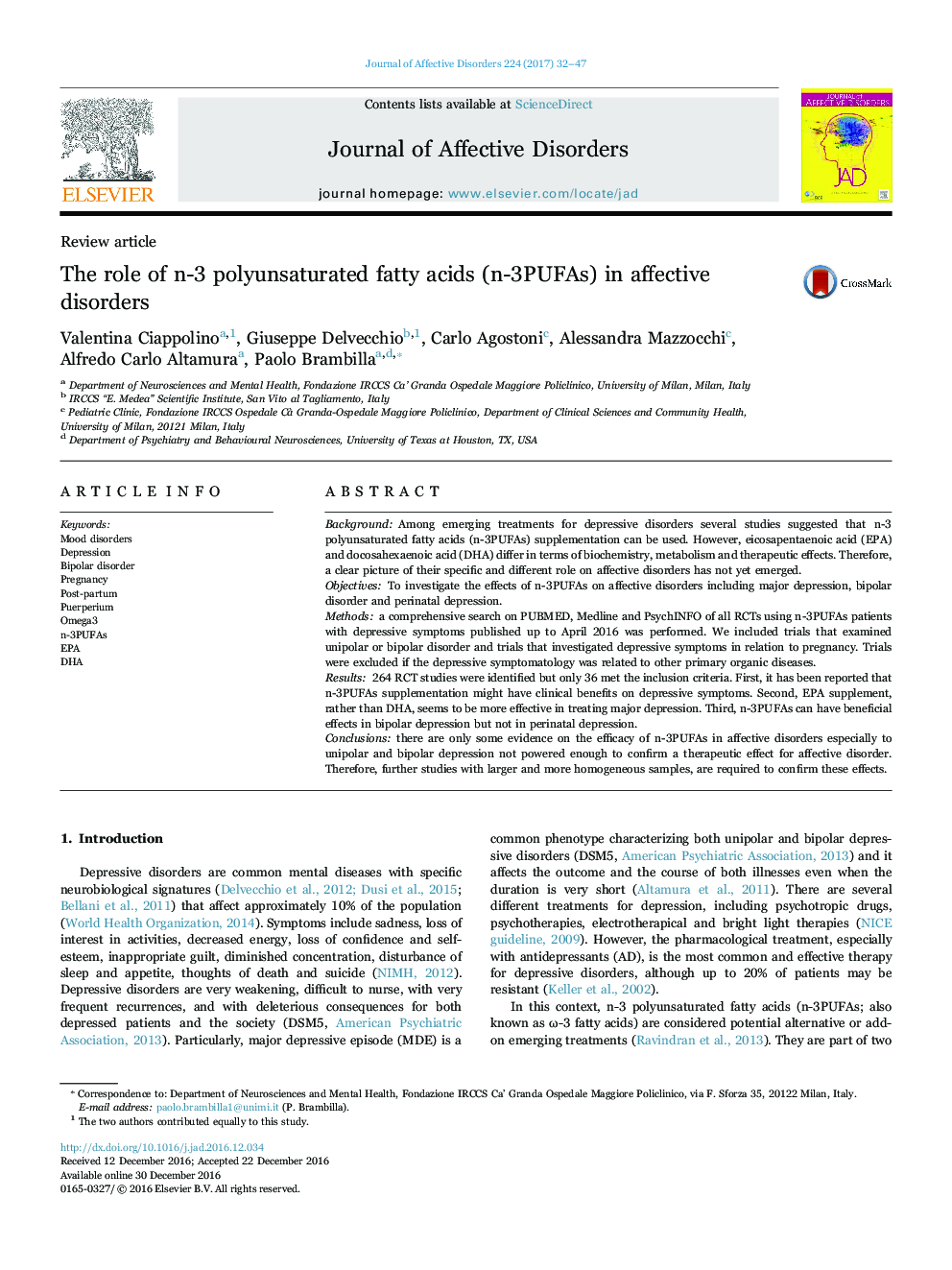| Article ID | Journal | Published Year | Pages | File Type |
|---|---|---|---|---|
| 5721821 | Journal of Affective Disorders | 2017 | 16 Pages |
â¢Long-chain n-3 polyunsaturated fatty acids (n-3 LCPUFA) are an emerging treatment for depressive disorders.â¢Eicosapentaenoic acid (EPA) and docosahexaenoic acid (DHA) differ in terms of biochemistry, metabolism and molecular targets.â¢DHA seems fundamental in neurodevelopment, whereas EPA effects in the brain may relate to their anti-inflammatory effect.â¢Data suggest that EPA and DHA may have different therapeutic effects in relation to depressive disorders.â¢Data show that n-3 LCPUFA can be used in the therapy of affective disorders, especially for unipolar and bipolar depression.
BackgroundAmong emerging treatments for depressive disorders several studies suggested that n-3 polyunsaturated fatty acids (n-3PUFAs) supplementation can be used. However, eicosapentaenoic acid (EPA) and docosahexaenoic acid (DHA) differ in terms of biochemistry, metabolism and therapeutic effects. Therefore, a clear picture of their specific and different role on affective disorders has not yet emerged.ObjectivesTo investigate the effects of n-3PUFAs on affective disorders including major depression, bipolar disorder and perinatal depression.Methodsa comprehensive search on PUBMED, Medline and PsychINFO of all RCTs using n-3PUFAs patients with depressive symptoms published up to April 2016 was performed. We included trials that examined unipolar or bipolar disorder and trials that investigated depressive symptoms in relation to pregnancy. Trials were excluded if the depressive symptomatology was related to other primary organic diseases.Results264 RCT studies were identified but only 36 met the inclusion criteria. First, it has been reported that n-3PUFAs supplementation might have clinical benefits on depressive symptoms. Second, EPA supplement, rather than DHA, seems to be more effective in treating major depression. Third, n-3PUFAs can have beneficial effects in bipolar depression but not in perinatal depression.Conclusionsthere are only some evidence on the efficacy of n-3PUFAs in affective disorders especially to unipolar and bipolar depression not powered enough to confirm a therapeutic effect for affective disorder. Therefore, further studies with larger and more homogeneous samples, are required to confirm these effects.
